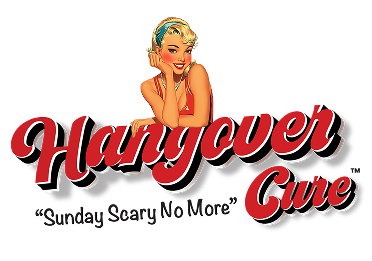
What is the Chemistry Behind a Hangover?
Share
Introduction
Have you ever woken up after a night of drinking with a pounding headache, nausea, and fatigue? These dreaded hangover symptoms are the result of complex chemical processes occurring in your body. Understanding the chemistry behind a hangover can help you better manage and prevent these symptoms. In this guide, we’ll explore how alcohol is metabolized, the compounds responsible for hangovers, and how products like Hangover Cure can help you recover quickly.
How Alcohol is Processed in the Body
Step 1: Absorption
When you consume alcohol, it’s absorbed into your bloodstream primarily through the stomach and small intestine. Factors such as food intake and alcohol concentration can affect the speed of absorption.
Step 2: Metabolism
The liver is the main organ responsible for breaking down alcohol. This process occurs in two key stages:
- Ethanol to Acetaldehyde: The enzyme alcohol dehydrogenase (ADH) converts ethanol to acetaldehyde, a highly toxic compound.
- Acetaldehyde to Acetic Acid: Acetaldehyde is further broken down by aldehyde dehydrogenase (ALDH) into acetic acid, which is less harmful and eventually converted to water and carbon dioxide.
Step 3: Elimination
Alcohol and its byproducts are excreted through urine, breath, and sweat. However, if alcohol consumption exceeds the liver’s processing capacity, toxins like acetaldehyde accumulate, leading to hangover symptoms.
Chemical Compounds Involved in Hangovers
Ethanol
Ethanol is the active ingredient in alcoholic beverages. While it produces the desired intoxicating effects, it also causes dehydration by suppressing the antidiuretic hormone (ADH), leading to increased urination and fluid loss.
Acetaldehyde
Acetaldehyde is a toxic byproduct of alcohol metabolism. It’s responsible for many hangover symptoms, including headaches, nausea, and inflammation. Prolonged exposure to acetaldehyde can also cause oxidative stress, further worsening symptoms.
Congeners
Congeners are impurities found in certain alcoholic beverages, particularly darker drinks like whiskey, red wine, and brandy. These compounds, including methanol and tannins, can intensify hangovers by promoting inflammation and oxidative stress.
Why Hangover Symptoms Occur
Dehydration and Electrolyte Imbalance
Alcohol increases urination, leading to significant fluid and electrolyte loss. Dehydration contributes to symptoms such as dry mouth, dizziness, and headaches.
Inflammation and Oxidative Stress
Acetaldehyde triggers an inflammatory response in the body, causing symptoms like body aches and fatigue. Additionally, oxidative stress damages cells, contributing to overall discomfort.
Disruption of Sleep Patterns
While alcohol may initially make you feel drowsy, it disrupts the REM (rapid eye movement) stage of sleep, leading to poor-quality rest. This lack of restorative sleep can leave you feeling exhausted the next day.
Blood Sugar Imbalances
Alcohol inhibits glucose production in the liver, leading to low blood sugar levels. Symptoms of hypoglycemia, such as weakness, confusion, and irritability, can compound the severity of a hangover.

How to Minimize Hangover Effects
Stay Hydrated
Drinking water or electrolyte-rich fluids before, during, and after alcohol consumption can help replenish lost fluids and prevent dehydration. Products like Hangover Cure provide essential electrolytes for faster rehydration.
Eat Before and While Drinking
Consuming food before drinking slows alcohol absorption and helps maintain stable blood sugar levels. Foods high in protein and healthy fats are particularly effective at reducing hangover severity.
Take Supplements or Remedies
Supplements containing vitamins, minerals, and antioxidants can help your body recover faster. Hangover Cure products are designed to reduce inflammation, replenish nutrients, and support liver function.
Frequently Asked Questions About Hangovers
What role does acetaldehyde play in hangovers?
Acetaldehyde is a toxic intermediate in alcohol metabolism. Its buildup causes inflammation, oxidative stress, and many common hangover symptoms, such as headaches and nausea.
Are certain types of alcohol more likely to cause hangovers?
Yes. Alcohols with higher concentrations of congeners, such as whiskey, red wine, and brandy, are more likely to cause severe hangovers than lighter options like vodka or gin.
How long does it take to recover from a hangover?
Recovery time varies based on factors like alcohol consumption, hydration levels, and individual tolerance. On average, hangovers last between 12 to 24 hours.
Why Choose Hangover Cure Products?
Fast-Acting Relief
Our products are designed to alleviate common hangover symptoms, including headaches, fatigue, and nausea, by targeting the root causes of discomfort.
Natural Ingredients
Hangover Cure uses a blend of natural ingredients, including vitamins, minerals, and electrolytes, to support your body’s recovery process without harsh chemicals.
Trusted by Health-Conscious Individuals
Developed with input from nutrition and health experts, Hangover Cure products are trusted by professionals, students, and everyday individuals seeking effective hangover relief.
Conclusion
Hangovers are the result of complex chemical and biological processes triggered by alcohol consumption. By understanding the role of ethanol, acetaldehyde, and congeners, you can take steps to minimize hangover symptoms through proper hydration, nutrition, and rest.
Ready to feel better faster? Explore our range of Hangover Cure products designed to provide fast, effective relief. Don’t let a hangover ruin your day—take control of your recovery today!
